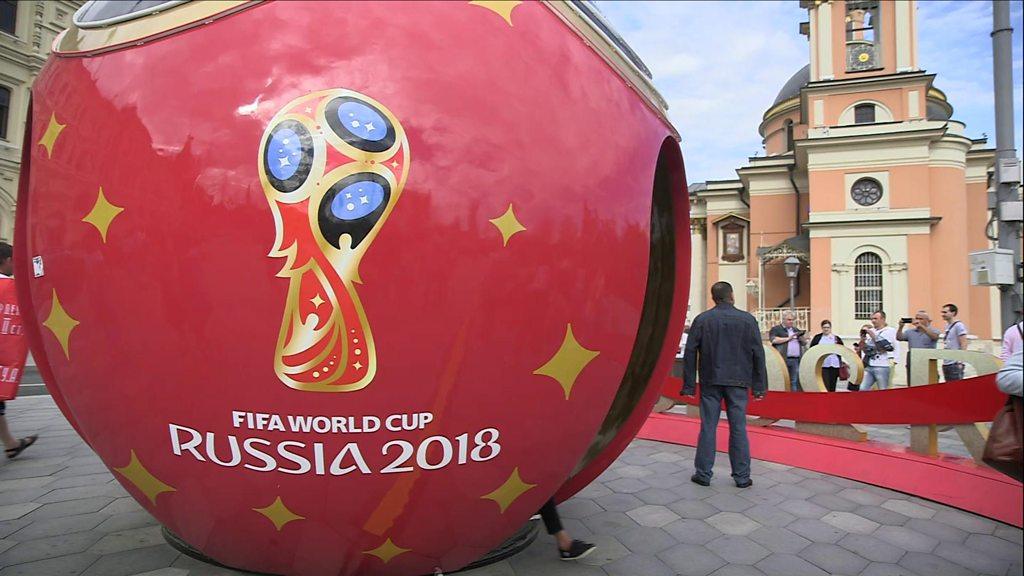Young Russians see lives changed by feel-good World Cup
- Published
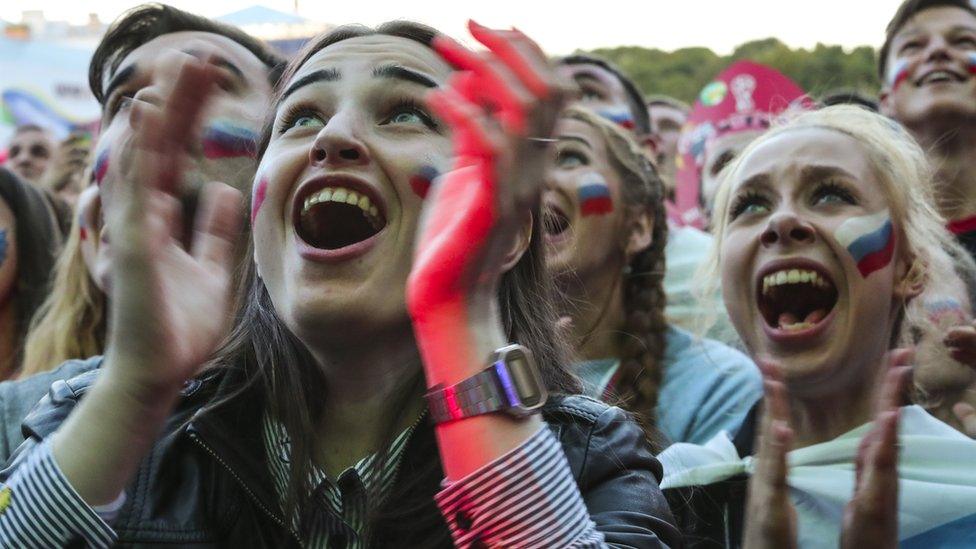
Reaching the quarter finals of the World Cup was beyond the wildest dreams of most Russians
Since the fall of communism young Russians have grown up viewing Moscow as a cosmopolitan capital.
But nothing prepared them for the vibrant, colourful and multicultural experience of hosting the World Cup.
Some 70% of Russians do not have a passport and the effect of the visiting fans on the 11 cities that have hosted the tournament has been extraordinary.
The number of foreign visitors in Russia has sky-rocketed.
Moscow has felt like a different city, while the smallest host city of Saransk has seen a staggering 200-fold rise.
When I saw a huge Argentine flag on my university building in Moscow, I was surprised how excited I was.
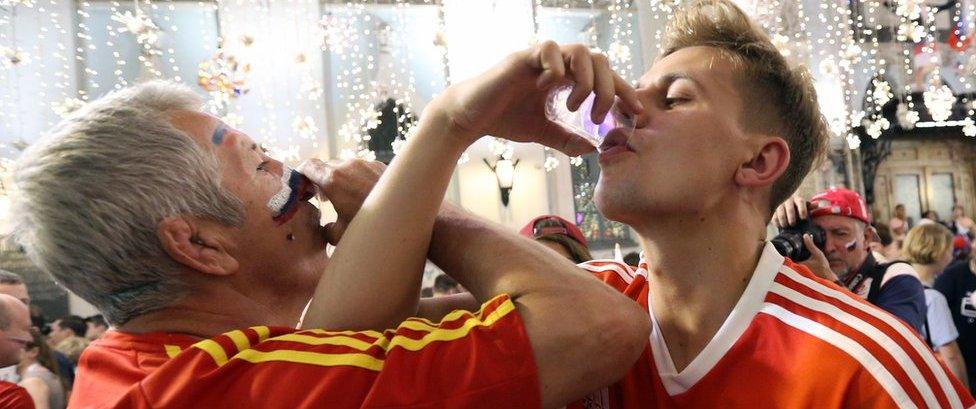
Russian authorities turned a blind eye to public partying and the people responded
Normally in Russia, if you want to hold a public gathering you have to put in a request in advance.
If it is an opposition rally you're trying to organise, then the answer will probably be no.
But for the World Cup that changed.
Although protests in tournament cities were banned, police turned a blind eye to public drinking and partying, the kind of behaviour that would normally get you arrested.
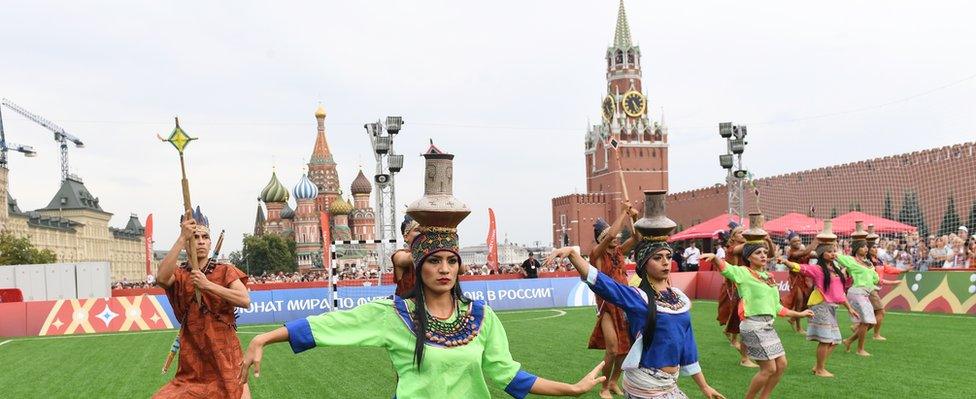
During the tournament part of Red Square became a football park
There was a refugee football match in Red Square, in a country not renowned for taking refugees.
Russians themselves have been acting differently too.
There's a popular series of internet memes here called "Russia is for sad people" (Rossiya dlya grustnykh).
But from the start of the World Cup Russians suddenly abandoned their grumpier side and discovered a new sense of joy, an eagerness to help and a taste for round-the-clock partying.
World Cup through the eyes of young Russia
The fact that the national football team performed far beyond expectations only heightened the national feel-good factor.
One schoolteacher in her late 40s, whom I encountered near Red Square, told me she had been coming into the centre of Moscow every day because the colourful atmosphere gave her a vibe and energy that she had never experienced before.
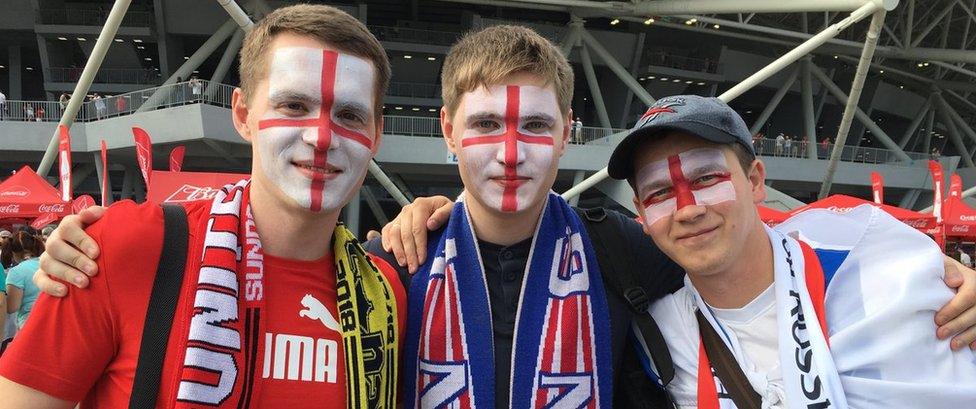
England fans in Samara? No, these young Russians were following England "because we like English football"
And it's not just Russians who have noticed it.
It's a paradox that the most multicultural moment in Russia's modern history has coincided with a period when we have been at our most isolated politically.
For the past five years Russia has had a bad press. Conflicts in eastern Ukraine and Syria, accusations of meddling in the US elections, and the poisoning of a former Russian spy in the UK have all generated negative headlines.
It has affected all of us.
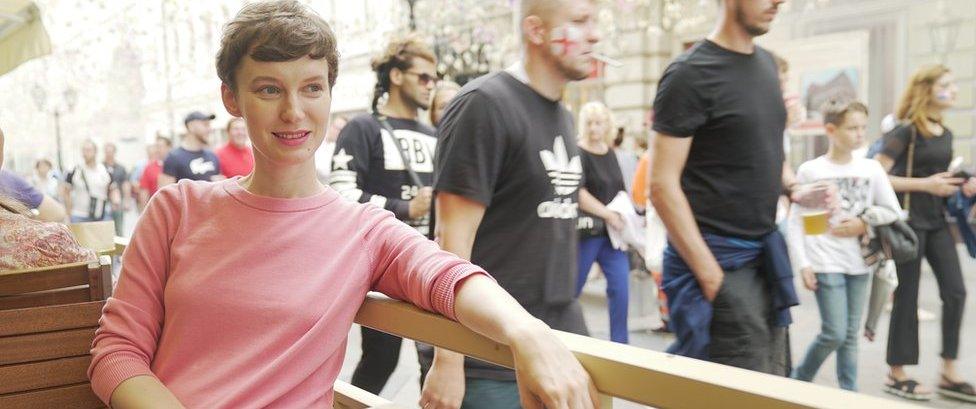
Nina Nazarova looks on as England fans walk past in the centre of Moscow
Before the tournament a photographer friend of mine saw a project fall through with British artists worried about working with someone from Russia.
"I really hope the World Cup will help us reconnect with the world," I remember her telling me.
And, of the dozens of foreign football fans I have met in the past month, almost all thought Russians would be "grey", "serious" and "cold".
Instead they have been surprised to find a people who are cool, kind, open and fun.
As the World Cup draws to a close, it feels almost as if Russia has been re-humanised as a nation.
And it's hard to convey just how important that is.
- Published10 July 2018
